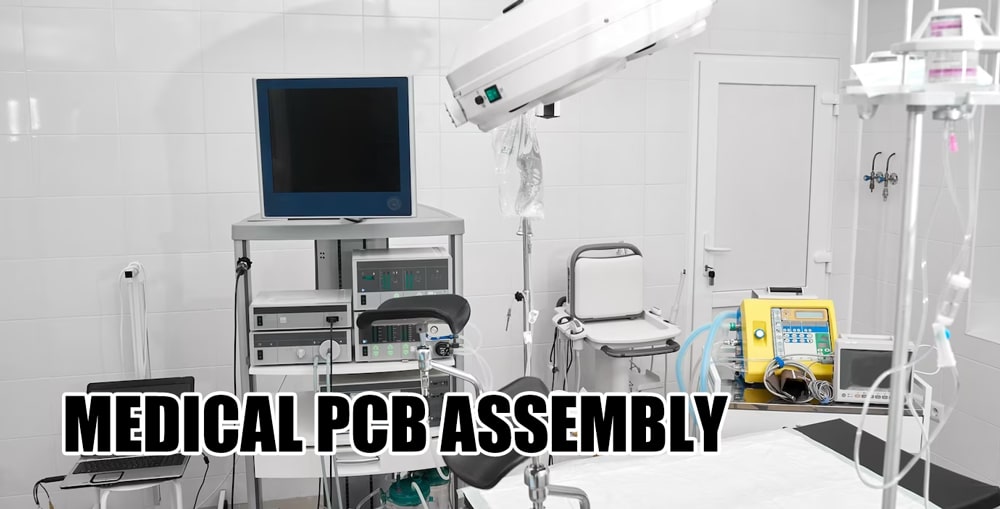Medical PCB Manufacturing & Assembly
22 August 2023
Views: 673
PCBs play a crucial role in the healthcare industry, as advanced medical devices and equipment enable effective diagnosis and treatment of patients. Medical PCBs demand strict requirements, driving the medical PCB manufacturing and assembly industry under the need for safety certification standards, miniaturization, precision, and reliability.
Medical PCBs are the backbone of cutting-edge medical equipment, saving and improving lives every day. High-precision PCB assembly is required for medical devices, such as imaging equipment (CT, MRI, ultrasound), patient monitoring systems, implantable devices (pacemakers, neural stimulators), surgical instruments, diagnostics, and laboratory equipment.
Choosing high-quality medical PCB assembly ensures accurate diagnosis and effective treatment, patient safety, and streamlines clinical workflows, so you need a trustworthy medical PCB assembly supplier.
The healthcare industry has high-quality requirements for circuit boards, and the chosen PCB manufacturer needs to meet the following standards:

ISO 13485: An internationally recognized quality management system standard specifically for the medical device industry, ensuring companies adhere to strict quality control protocols.
FDA Regulations: Manufacturers and assemblers in the medical device industry must comply with U.S. Food and Drug Administration (FDA) regulations, which ensure the safety and effectiveness of medical devices, including compliance with Quality System Regulations.
RoHS: This European Union directive restricts the use of specific hazardous substances in electronic components and devices. RoHS compliance is essential for medical PCB manufacturing.
IPC Standards: Compliance with IPC (Association Connecting Electronics Industries) standards, such as IPC-A-610 and IPC-6011, ensures that PCB craftsmanship, quality, and performance meet globally recognized standards.
POE has been providing one-stop medical PCB manufacturing and assembly services for the medical device industry, possessing the above ISO 13485, FDA, ROHS, and IPC certification standards, and is committed to providing 100% high-quality products for customers. To learn more about us, please contact us by e-mail, and we have professionals available 24 hours a day to answer your questions.
Considerations when choosing a medical PCB:
When selecting medical PCB assembly, the materials used in medical PCBs must not cause any adverse reactions or harm to patients. Therefore, we prioritize using biocompatible materials such as FR-4, Rogers, and Teflon for our customers.
Medical PCBs require higher sanitation standards, making a clean production environment and strict cleaning processes necessary, along with high-temperature, humid, and sterilization processes.
As medical devices become smaller and more portable, PCBs must also be compact and lightweight. We often recommend High-Density Interconnect (HDI) PCBs to our customers without worrying about product quality, as POE employs comprehensive inspection and testing methods, such as Automatic Optical Inspection (AOI), X-ray inspection, In-Circuit Testing (ICT), and functional testing to ensure medical PCB quality.
Conclusion
Medical PCB manufacturing and assembly play a significant role in the healthcare industry by enabling innovative, reliable, and high-performance medical devices. Choosing a reliable medical PCB manufacturing and assembly supplier can help your medical device project achieve higher quality and smoother completion.



